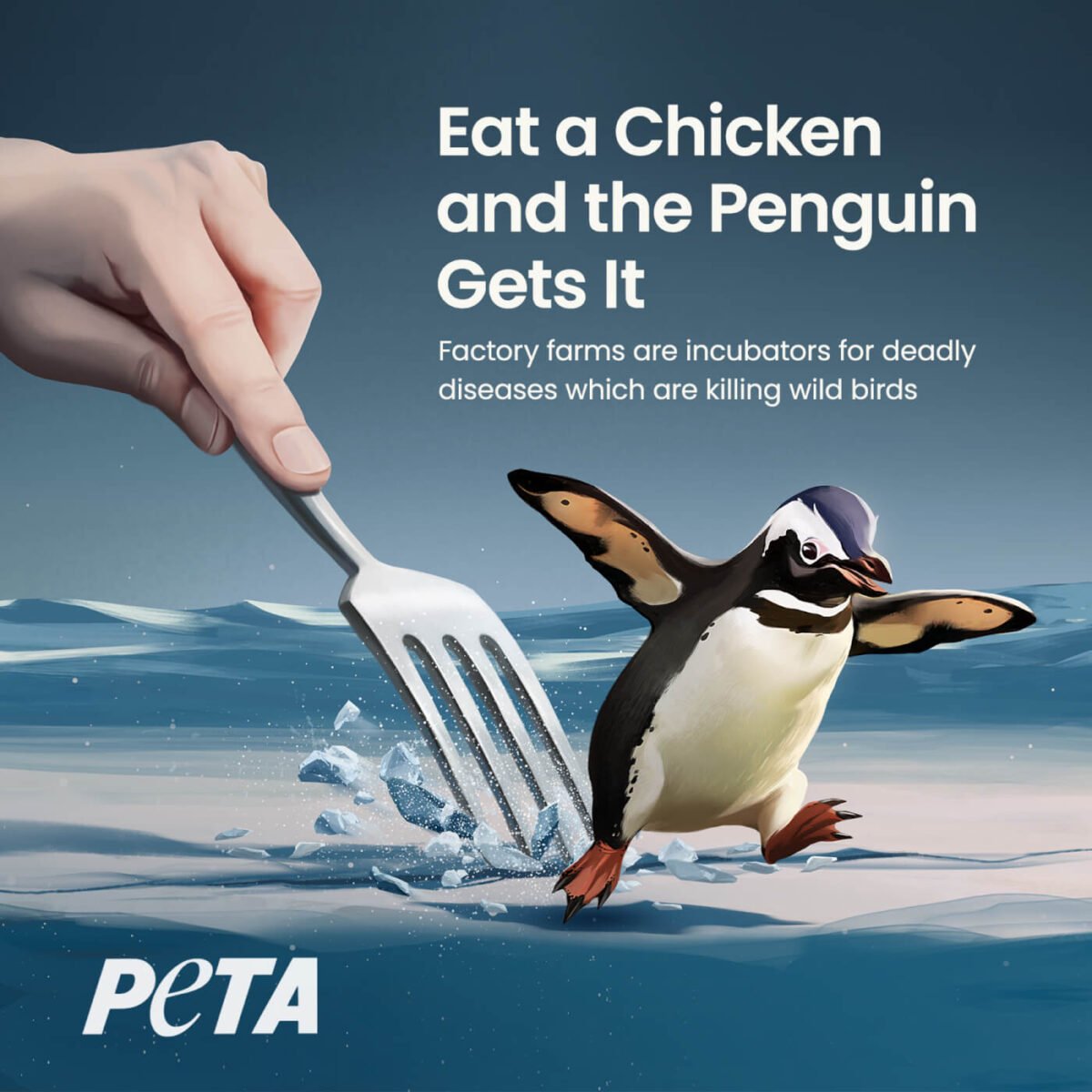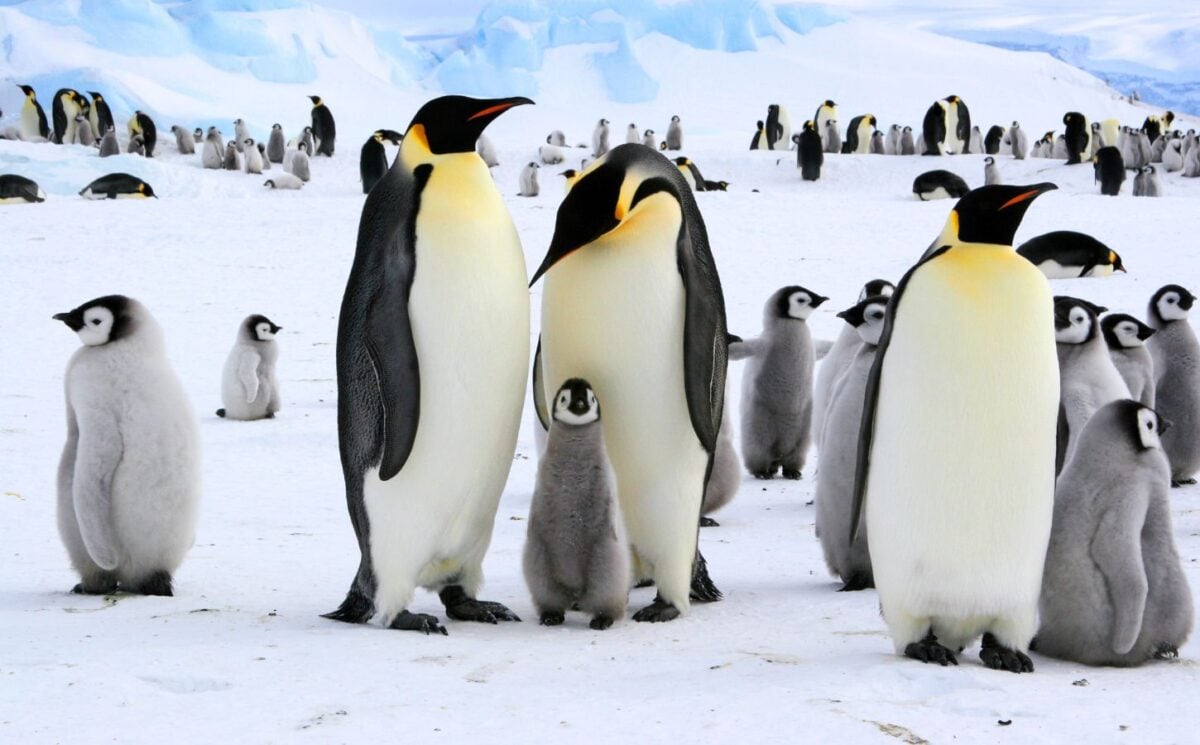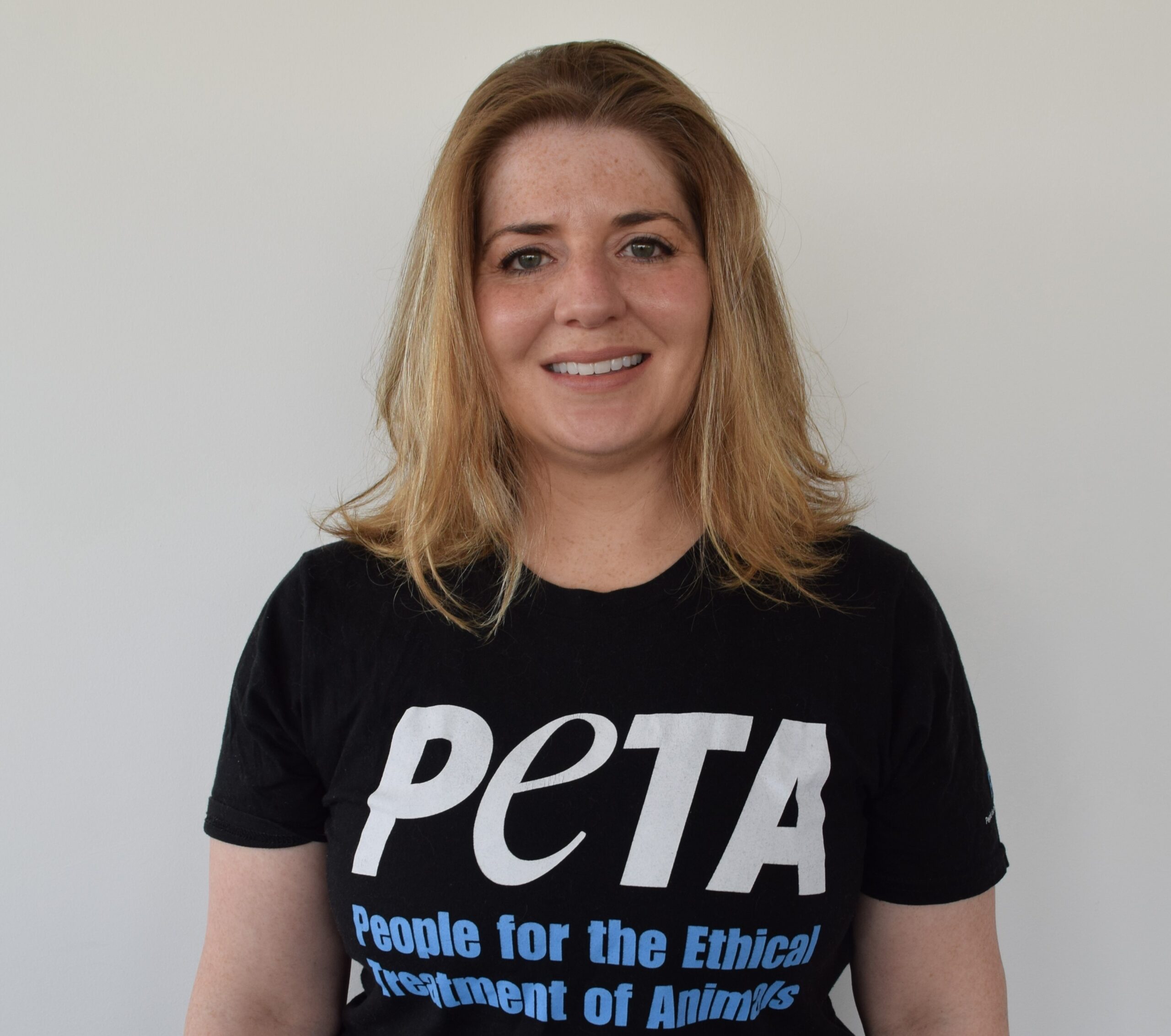People for the Ethical Treatment of Animals (PETA) recently unveiled a billboard in Sydney which forces passersby to confront the consequences of their dietary choices. Featuring an irresistibly cute penguin chick evading an ominously looming oversized fork, the message reads, “Eat a Chicken and the Penguin Gets It. Factory Farms Are Incubators for Deadly Diseases Which Are Killing Wild Birds.”
The timing of this message is not coincidental.
The H5N1 virus, a highly pathogenic strain of avian influenza – or “bird flu”, as it’s commonly known – has unexpectedly surfaced in the Antarctic, shattering the notion that this region is a pristine wilderness and one of the last strongholds of natural purity. The virus has been found in Bird Island, which is part of the British overseas territory of South Georgia. Migratory birds named brown skua tested positive for the virus, and it’s thought they brought it to Antarctica from South America.
Experts have said that the situation could lead to a potentially “catastrophic breeding failure,” and concerns are rising about isolated populations of penguins who have never been exposed to the virus before.
How did bird flu get to Antarctica?

But how did this virus, which poses a threat to both wildlife and humans, find its way to such a remote and seemingly untouchable locale?
The answer lies in the disturbing conditions prevalent on industrial chicken farms, where stress and severe crowding create a breeding ground for infectious diseases.
A farm raising 20,000 chickens at a time for their flesh, which is standard for most factory farms, generates approximately 150 tonnes of waste – a mixture of excrement, spilled feed, feathers, and bedding material – per year. Inghams Enterprises, one of the largest chicken suppliers in Australia, slaughtered a staggering 214 million chickens in 2022.
Because there are so many pathways through which viruses can spread beyond the confines of such facilities – via ventilation and insects and of course while trucking birds to slaughter – the possibility of wild birds contracting, spreading, and dying from these viruses is alarmingly high.
Factory farming and zoonotic disease
The relationship between factory farming and zoonotic diseases is nothing new – it has long been known that animal-borne pathogens can mutate and cause illnesses in humans. The World Health Organization has linked COVID-19 to the intensive breeding of animals on loosely regulated wildlife farms in Southeast Asia, and major zoonotic outbreaks in the last three decades, such as Q fever in the Netherlands and highly infectious bird flu strains, have been associated with intensive animal farming.
As Australia grapples with yet another round of COVID-19 variants, it is evident how quickly we dismiss potential health risks in favor of momentary pleasures and conveniences. We need a collective awakening – a recognition that our dietary preferences and practices have far-reaching consequences. Confronting jarring realizations is tough, but turning a blind eye only makes matters worse, for everyone.
It seems almost surreal that another global health crisis is looming, but we are not powerless to stop it because we know how to slow the spread of H5N1. With everything from vegan burgers to fishless filets and chickenless nuggets readily available in Australian supermarkets, restaurants, and fast-food outlets, it’s easy to save penguins while also saving ourselves.






